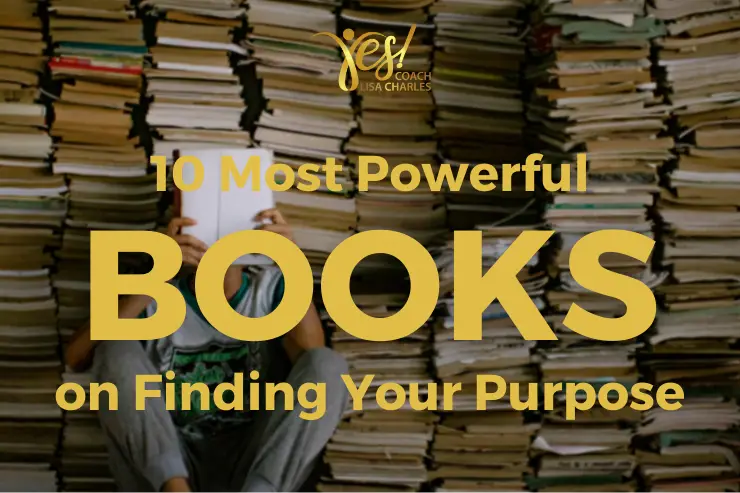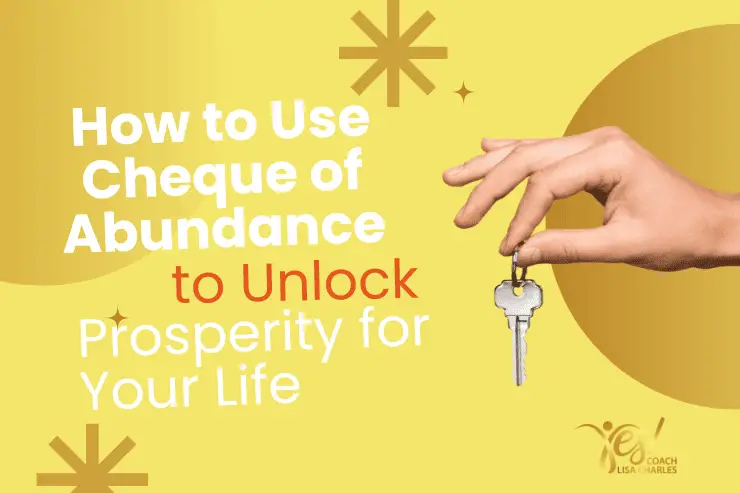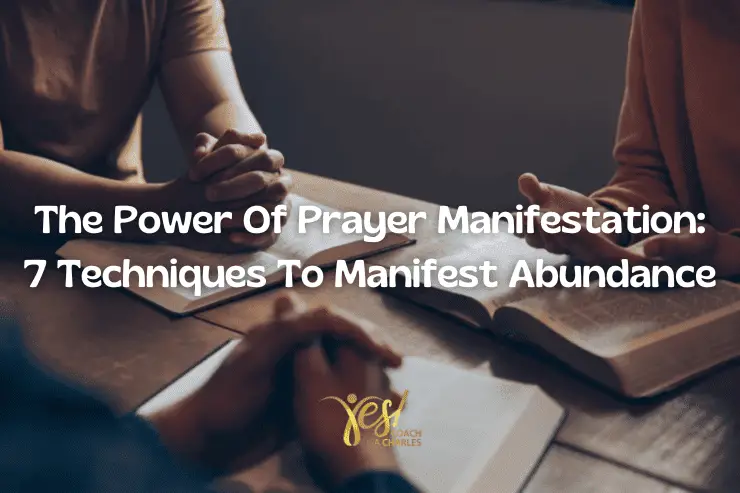10 Most Powerful Books on Finding Your Purpose
You want to find your purpose, but it all feels a bit daunting. Maybe it seems a little too Hollywood. It may feel too far out of reach and too unrealistic. Maybe you’re afraid that it’s too late. Or that it’s too overwhelming to consider at this point in life.
The truth is, these are all misconceptions.
Finding purpose is way more attainable than you realize. And it’s possible for everyone at any stage of life.
Finding purpose is the difference between living aimlessly and living by direction. And it’s an absolute necessity for leading a meaningful and fulfilling life.
Finding purpose also improves your outlook on life and can boost your health and longevity. It allows you to align your passion with soul-satisfying work.
So, what’s the quickest way to squash all your misbeliefs and finally find your purpose?
It all starts with a book.
Why start with a book on your journey?
Books are what will help you map out the way to finding your purpose.
Inside a book is a wealth of knowledge pulled from someone else’s years of study and life experience. That knowledge is all condensed into helpful tools, techniques, and lessons to effectively support you in your endeavor.
Books about finding your purpose are also valuable resources for sparking life-changing transformation.
Reading lets you sit with yourself and go inward—a significant step when navigating through the heavy question of personal purpose.
Books about finding your purpose meet you exactly where you are. Then, they gently guide you in the direction you want to head towards.
Think of these books about finding your purpose as a cheaper but equally informational personal mentor. Sort of like a life coach on the page!
Ready to dive into your next book? Here’s a list of ten transformative books on finding purpose to get you started on your journey!
1: “The Purpose Driven Life” by Rick Warren

Rick Warren says nothing energizes us more than having a clear purpose. But how do we uncover that purpose?
In The Purpose Driven Life, Warren lays out the clear path. Chapter by chapter, he guides readers through a 40-day spiritual journey grounded in scripture and Christian values.
From the beginning, Warren clarifies that this is not a self-help book. And it isn’t a book about looking for the answer within.
Instead, it’s a book about looking to God to understand what He created you to be. This idea is the whole premise that Warren’s approach to finding purpose centers on.
“You cannot arrive at your life‘s purpose by starting with a focus on yourself,” Warren explains, adding, “You must begin with God, your Creator.”
Key takeaways from the book:
- All of this begins with God. He is the starting point in the search for purpose. Once we understand this, we can unveil our role in God’s larger plan.
- Life is a temporary preparation for eternity. Just like a practice test before the final exam. Our purpose is really about our eternal legacies, not our earthly ones.
Warren also lays out the Five Essential Purposes behind living a purpose-driven life directed by God.
- To live for God’s pleasure
- To live for God’s family
- To become like Christ
- To serve God through ministry
- To fulfill your mission in the world
Within the book, Warren includes practical exercises that are clear and straightforward. At the end of each chapter, there’s always a point to ponder, a verse to remember, and a question to consider.
Currently, The Purpose Driven Life has sold upwards of 60 million copies. Since its initial release in 2002, it’s been met with glowing praise and continues to inspire people worldwide.
Provide an affiliate link to purchase the book, encouraging readers to explore it further.
2: “Man’s Search for Meaning” by Viktor E. Frankl

In Man’s Search for Meaning, Viktor E. Frankl gives a harrowing account of his experience surviving in concentration camps during the Holocaust.
While imprisoned, Frankl observed how the prisoners who stopped looking to the future lost their will to live quickly. Their sense of meaning was stripped because they could not find any purpose to their suffering.
Frankl, however, saw that his suffering was an opportunity for achievement—a chance to answer to life through the right actions and decisions.
Love for his wife, the beauty of nature, and curiosity about the future kept him going. He also found meaning in the hope of rewriting his lost manuscript someday.
Frankl’s will to survive remained intact by finding meaning in his experience.
All these observations also informed Frankl’s later work as a psychiatrist. They led to his development of Logotherapy, which focuses on helping people give meaning to their lives.
Frankl believes that people’s central motivation in life is to find meaning. He views life as having endless meaning and believes that if life has meaning, suffering must have meaning too.
Once you can identify the meaning of suffering, it no longer feels like suffering.
One belief system that helped Frankl survive his situation was Tragic Optimism.
The Tragic Optimist finds hope no matter how unfortunate the circumstance. Traumatic emotions and experiences are acknowledged instead of avoided. And they are accepted as a chance to find greater purpose and meaning.
Frankl’s philosophy is that it doesn’t matter what we expect of life. What matters is what life expects of us. Every situation holds an opportunity to discover the meaning within. And that meaning will always be particular to the person and the circumstance.
Bottom Line: The meaning of life is unconditional. You can discover purpose wherever you look for it.
Provide an affiliate link to purchase the book, encouraging readers to explore it further.
3: “The Alchemist” by Paulo Coelho

The Alchemist by Paulo Coelho serves as an allegory for self-discovery.
It’s an enchanting narrative emphasizing the importance of following dreams and listening to the heart’s desires.
Too many people let fear hold them from following their dreams. But The Alchemist reminds readers that “fear of suffering is worse than suffering itself.”
And it promises “no heart has ever suffered when it goes in search of its dreams.”
The Alchemist says you can find your heart and treasure in the same place. Simply put, listening to the heart’s desires is the way to find purpose and fulfillment in life.
Santiago, the protagonist, sets out on a journey of self-discovery sparked by recurring dreams of treasure in the Egyptian pyramids. In his quest for the treasure, he learns valuable life lessons.
Obstacles test Santiago while teaching him the importance of perseverance when facing failure. Despite the many setbacks that tempt him to stray from his path, Santiago carries on.
Omens guide him, while showing him the power of trusting the unknown in the face of fear. Santiago learns not to let fear or doubt hold him back.
The Alchemist promises that, “When you want something, all the universe conspires in helping you to achieve it.”
Santiago’s journey demonstrates this sentiment and inspires readers from all backgrounds to pursue their passions and find their purpose.
This universally appealing tale reminds readers to release fear and confidently follow their heart’s desire, however old they may be.
Provide an affiliate link to purchase the book, encouraging readers to explore it further.
4: “Start with Why” by Simon Sinek

Simon Sinek believes that if you don’t know why, you can’t know how, either.
In his book Start with Why, Sinek demonstrates how clarifying your why is the ultimate impetus of lasting success.
Sinek focuses on how companies with a clear “why” have the upper hand against those who only stop to answer ‘what.’
A clear why inspires consumers. It’s the thing that fosters customer loyalty.
When people in a company can understand its “why,” they feel a greater sense of belonging and, in turn, become more productive.
But Sinek’s concept of starting with why isn’t only relevant to professional endeavors. It’s also just as applicable for personal ones.
With the question of why, Sinek says he is asking what your purpose, beliefs, and values are. Once you can identify your why, everything else becomes clear.
Regarding purpose-driven leadership, Sinek clarifies the difference between being a leader and leading.
He defines a leader as the person with the highest rank. A leader receives their position through merit, politics, or good luck.
Leading, however, is inspired. People follow by choice rather than obligation.
Purpose-driven leadership centers on the latter. It’s what drives historic social movements and successful companies.
Sinek’s Golden Circle theory provides a practical framework for effectively discovering and communicating your purpose.
It’s a communication tool that works from the inside out:
- First, you define “why” you do what you do.
- Then, “how” you do what you do.
- And lastly, “what” you do.
He shapes his three-dimensional version of the Golden Circle as a cone to represent a megaphone. “For a why to have the power to move people it must not only be clear, it must be amplified to reach enough people to tip the scale,” Sinek clarifies.
In other words, a strong why that inspires is not only clear, it’s also loud. Your why has to be heard by a large enough audience to have a significant impact.
Provide an affiliate link to purchase the book, encouraging readers to explore it further.
5: “Big Magic” by Elizabeth Gilbert

Big Magic explores the magic and synchronicity behind creativity, ideas, and what Elizabeth Gilbert terms “creative living.”
Gilbert suggests that creative living is playful. It is a life driven more by curiosity than fear.
This idea is a pivotal takeaway because we move closer to uncovering our purpose when our curiosity leads us.
“If you are alive, you are creative,” Gilbert encourages.
Everyone can lead a creative life, so long as they have the bravery to choose it.
But being brave does not mean being fearless!
Gilbert believes fear and creativity are conjoined. Instead of fighting against fear, she makes room for it. Gilbert says fear gets a seat and even a voice but never a vote. Only creativity makes the decisions.
Big Magic empowers readers to tap into their creative potential by leading a creative life.
Leading a creative life is all about following curiosities and trusting the unknown. It means making room for play, excitement, and personal enjoyment.
Ultimately, the creative life is an expansive one full of big magic.
Provide an affiliate link to purchase the book, encouraging readers to explore it further.
6: “Finding Your Element” by Ken Robinson

Finding Your Element by Ken Robinson is a self-exploratory guidebook helping readers identify their unique talents, passions, and interests.
To find your element, you must align your innate capabilities and passions with meaningful work you enjoy.
That is what leads to a sense of purpose.
It’s not enough to do what you’re good at—you have to feel passionate about it, too.
Robinson says there are 3 Elemental Principles that finding your element is based on:
- Your life is unique.
- You create your own life.
- Life is Organic.
Within the book, Robinson offers numerous resources and tools to aid in discovering your element.
Each chapter contains practical techniques, thought-provoking questions, and exploratory exercises to bring you deeper insight.
One core process to finding your element includes stopping the noise.
Robinson says, “To find your element, you have to get to know yourself better. You have to spend time with yourself apart from other people’s opinions of you.”
For this reason, Robinson encourages meditation.
In the book’s first exercise, he asks readers to take five minutes to be intentional. He guides you to close your eyes, deeply inhale, slowly exhale, and focus on the flow of your breath.
Many other exercises involve reflective activities like mind mapping, creating visual collages, and automatic writing. And they all help with gaining further clarity to uncover your element.
Provide an affiliate link to purchase the book, encouraging readers to explore it further.
7: “Designing Your Life” by Bill Burnett and Dave Evans

Have you ever considered the amount of skill that went into creating your cell phone? Your laptop? Your car? Or the type of thinking that went into transforming an idea into a masterfully made product?
Designing Your Life wants you to apply the same design principles that produced your favorite products into the construction of your life.
Burnett and Evans highlight how implementing design thinking into your life can help you transform yours into a more purposeful and fulfilling one.
The two act as your personal design team throughout the book and encourage you to adopt a designer’s mindset.
The first step to developing a designer’s mindset? Understanding these Five Design Thinking Simple Mindsets:
- Curiosity is an exploratory and playful mindset. It lets you recognize the many possibilities that are all around you.
- Bias to Action is a build-your-way-forward mindset that encourages you to try things and test them out by prototyping. It’s experimental and unattached to the outcome.
- Reframing requires stepping back, checking biases, and reframing your POV to allow for new solutions to a problem.
- Awareness involves keeping your focus on the process itself instead of an end goal.
- Radical Collaboration means you need to get help from others. For excellent design, you need to have a team.
Burnett and Evans bring up the key point that designers build their way forward rather than think their way forward. This strategy is highlighted in the Bias to Action mindset, and it’s what a designer would call prototyping.
Prototyping plays an integral part in exploring different potential paths and finding purpose. A well-designed prototype is a safe, noncommittal way to try things out and gather insight about versions of your future.
Prototyping begins with a good question. It allows you to create the experiences needed to “fail fast and fail forward” into a solution.
Although it involves imagination, prototyping is grounded in practical, physical experiences.
One form of prototyping involves holding “Prototype Conversations.” To do this, you seek out people currently working in the career or living the life you aspire to. Through conversation with them, the goal is to form a clear sense of what that specific career or life entails. You also want to understand how they got there. Then, imagine if you can see yourself being passionate about that same job or lifestyle for an extended time.
The other form is called “Prototype Experiences.” This process is about learning through experience. For example, by getting an internship or shadowing someone within an industry you’d like to be in.
Among the many other practical exercises and design tools within Designing Your Life, one of the most effective is the simple act of reframing.
Burnett and Evans provide numerous examples of “Dysfunctional Beliefs” flipped into more empowering, functional “Reframes” all throughout their book. For example–
Dysfunctional Belief: I need to figure out my best possible life, make a plan, and then execute it.
Reframe: There are multiple great lives and plans within me, and I get to choose which one to build my way forward to next.
By the end, Burnett and Evans will completely transform any limiting beliefs you may currently hold about what is really possible for your life.
Pick up this book if you finally want to create a well-designed life that aligns with your values and aspirations!
Provide an affiliate link to purchase the book, encouraging readers to explore it further.
8: “The Four Agreements” by Don Miguel Ruiz

In The Four Agreements, Don Miguel Ruiz showcases how readers can use ancient Toltec wisdom to find personal freedom and discover their purpose.
From an early age, we receive conditioning from the adults closest to us. With no choice, we inherit their opinions, belief systems, morals, rules, and cultural norms.
These early “agreements” go on to shape and dictate our lives. They become our personal truths, even though they may be based on fear and emotionally drain us.
Ruiz says that Toltec warriors see belief systems like these as a type of parasite governing minds and lives.
As adults, we must examine our old agreements and let them die.
In their place, Ruiz suggests practicing four new agreements that will lead the way to finding personal freedom and purpose.
Agreement 1: “Be impeccable with your word.” This agreement requires you to be more intentional in what you say and encourages a sense of personal accountability. It can be a helpful tool in guiding readers toward self-discovery. You’ll learn what matters to you once you commit to genuinely aligning your actions with your words—no more broken goals and intentions.
Agreement 2: “Don’t take anything personally.” Applying this agreement means retiring the idea that we are the main character in everyone else’s life. It’s understanding that what people say has everything to do with them and nothing to do with you. Embodying this transformational agreement is freedom.
Agreement 3: “Don’t make assumptions.” Assumptions are the quickest way to ruin relationships. When you stop to ask questions first, you gain true clarity on the situation and transform your relationships into something more authentic.
Agreement 4: “Always do your best.” This one is not about measuring how much you take on each day. Your best is going to look different each day. It can switch up depending on your mood and energy level. All that matters is that you are honestly giving your best effort daily. When you start practicing this agreement, all your days will feel productive.
Ruiz says these Four Agreements give you the instructions for finding heaven on earth.
Another idea Ruiz shares is his belief that we are always dreaming. Not just when we are asleep but when we are awake, too.
Although we each have a personal dream, many people are caught up in society’s shared dream. They feel confused about their purpose and desires because of clashing beliefs.
If the life you find yourself in isn’t working for you, Ruiz invites you to dream anew!
He maps out practical ways to break old agreements and embrace new perspectives. Ruiz shows you how to transform your life into a more purposeful and enjoyable one!
Provide an affiliate link to purchase the book, encouraging readers to explore it further.
9: “Essentialism” by Greg McKeown

Greg McKeown’s Essentialism provides a minimalistic strategy for tackling the mental clutter that comes with figuring out where to put our focus.
Essentialism lies in identifying and focusing on the key activities and choices that matter while wasting no attention on those that don’t. It’s a total mindset shift from choosing distraction to choosing with intentionality and wisdom. From doing more to doing less—but more effectively.
“Essentialism is not about how to get more things done,” McKeown explains, “it’s about how to get the right things done.”
Aligning ourselves in this “right” direction sets us toward a purposeful life.
Following McKeown’s process of pursuing less allows us to slow down and make space for the answer to: “What’s my purpose?”
By narrowing the list of what we choose to take on, the question doesn’t become: “What should I say yes to?” But instead: “What do I say no to?”
This question helps us find the clarity needed to unveil our life’s purpose.
McKeown points out that saying yes to one thing ultimately requires saying no to many others.
Being able to say no to non-essentials is a fundamental prerequisite to leading a fulfilling, purposeful life where your goals take priority.
For many people, though, saying no feels like an extreme faux pas.
In solution, McKeown offers up a “‘No’ Repertoire” full of scripts for readers to utilize in their own lives when saying “no” gracefully.
One script includes the soft “no,” which translates to a “no but.” It’s a “no” (for now) that leaves room for a time you find more convenient. For example, “I can’t right now, but I’d love to try for next month.” This script is best used by email.
Essentialism also demonstrates how what you don’t do can be as important as what you do.
A historical example of this is Rosa Parks.
McKeown observes how her refusal to move to the back of the bus sparked the civil rights movement. He points out how this simple “no” pivoted history.
By saying “no,” Parks was able to step into her purpose of becoming a leading figure in a monumental social justice movement.
One practical essentialism strategy McKeown shares, which can also help with discovering purpose, involves creating space to explore.
Exploration helps weed out what’s indispensable from what’s inconsequential.
One facet of exploration is escaping. This practice means making time in your busy schedule to sit and think, free from distraction.
It’s a time to explore the thoughts and ideas within. Even if it’s just carving out five minutes in your morning, McKeown emphasizes that it’s a worthwhile investment.
Provide an affiliate link to purchase the book, encouraging readers to explore it further.
10: “Daring Greatly” by Brené Brown

So, you want to find purpose? Embrace vulnerability and imperfection first.
Brené Brown, a shame and empathy researcher, believes this is essential to living a wholehearted, purposeful life.
Why? Because we are hardwired to connect.
“Connection is why we’re here,” Brown says. “It’s what gives purpose and meaning to our lives.”
In her book Daring Greatly, Brene Brown dispels the myth of vulnerability being a weakness.
She explains that vulnerability is a strength and a prerequisite to forming the authentic relationships we need.
But too many people shy away from vulnerability because of the shame that comes with it. Shame for being imperfect. Shame for trying. Shame over what others may think of them.
Shame is a destructive emotion that permeates throughout our culture–from our work, our schools, our families, and our communities.
Through her research, Brown set out to fully understand shame. And to identify what separates people who are resilient to shame (the “wholehearted”) from those controlled by it.
Within her research data, Brown found The Five Most Important Themes:
- Connection is indispensable. It’s where we find purpose.
- The one thing separating those who feel they belong from those who don’t is their beliefs about their worthiness.
- Fostering a secure sense of worthiness involves practice and intention.
- Courage, connection, and compassion are the focal points of wholehearted living.
- The wholehearted value vulnerability and cite it as the reason for their courage, connection, and compassion.
Brown also identified three Common Vulnerability Shields people tend to put up:
- Foreboding Joy–the fear that joy is temporary and carries a negative catch.
- Perfectionism–the belief that being perfect will protect you from shame.
- Numbing–losing yourself in something to stop or comfort the pain.
These shields are what stop us from making honest connections and living wholeheartedly.
Ready to start embracing vulnerability on your journey toward finding your purpose? Daring Greatly provides the strategies for you to succeed.
One core strategy is practicing Shame Resilience. Brown recognizes shame resistance is impossible, so instead, she advocates for resilience over shame.
“Shame resilience is about moving from shame to empathy,” Brown explains.
Rather than avoiding shame, it’s about moving through the experience with authenticity and leaving it with even more compassion, courage, and connection.
Three Shame Resilience Moves:
- Share your experience with a trusted loved one.
- Use loving and soothing self-talk.
- Own your truths so you can narrate your story’s ending.
Main Takeaway: To dare greatly and find your purpose, start by embracing your imperfections, believing in your worthiness, and showing your authentic self!
Provide an affiliate link to purchase the book, encouraging readers to explore it further.
Author’s Preference:
While each book in the list offers valuable insights and unique perspectives on finding purpose, it’s important to note that personal preferences may vary. However, based on extensive research and popular opinion, the following book is often regarded as an exceptional choice:
Man’s Search For Meaning by Victor Frankl
Based on personal preference, my “Best Choice” pick goes to:
Designing Your Life by Bill Burnett and Dave Evans
This book was a great tool in helping me dismantle a lot of “Dysfunctional Beliefs” into healthier “Reframes.”
Taking on a designer’s mindset helped me approach finding purpose in a fun and creative way. And it’s a philosophy I continue to use in many aspects of my life.
Bonus Pick:
And for those looking for something extra, my Bonus Pick goes to:
Yes! Commit. Do. Live: Embrace the Brain-Body Connection to Achieve Your True Desires by Lisa Charles
Final Thoughts
These books prove that finding your purpose is not the daunting, impossible experience you may have initially imagined it to be.
Finding your purpose is a fun, collaborative, and exploratory process that begins when and how you decide it does!
Just like life brims with infinite meaning, there are endless ways of finding your purpose.
All of these books about finding your purpose approach the process uniquely.
And it’s up to you to determine which method resonates the most.
So now, on to deciding where to begin—
Would you like to mix play and creativity into your journey while dreaming up some wild ideas? Start with:
- Big Magic by Elizabeth Gilbert
or - Designing Your Life by Bill Burnett and Dave Evans
Do you want to embrace more vulnerability and authenticity along your journey? Start with:
- Daring Greatly by Brené Brown
Are you hoping to gain more clarity on your purpose and better discernment? Start with:
- Essentialism by Greg McKeown
or - Start With Why by Simon Sinek
Would you like to begin your journey toward purpose with spiritual grounding? Start with:
- The Purpose Driven Life by Rick Warren
Are you looking for a philosophical take on the search for purpose? Start with:
- Man’s Search for Meaning by Victor Frankl
Do you find inspiration through prose, symbolism, and enchanting allegory? Start with:
- The Alchemist by Paulo Coehlo
Are you looking for a guidebook complete with practical exercises and real-life examples for you to relate to? Start with:
- Finding Your Element by Ken Robinson
or - Designing Your Life by Bill Burnett and Dave Evans
Would you like to start your journey by freeing yourself of old beliefs and shifting your perspective? Start with:
- The Four Agreements by Don Miguel Ruiz
There’s no wrong answer. Just begin somewhere!
Embarking on this journey will be highly transformative.
As you uncover your purpose, your doubts and indecisions will grow smaller and smaller. Your path will seem that much clearer. Life will flow more freely.
Bottom Line? Finding your purpose is the key to leading a more fulfilling and meaningful life!
FOLLOW US ON:
Facebook
Pinterest
Instagram
LinkedIn
You may also like:
200+ Empowering New Beginnings Quotes to Ignite Your Inner Courage
110 Heartwarming ‘You Are Special’ Quotes to Brighten Your Love One’s Day
505 Things to Be Grateful For That Will Lighten Your Day







